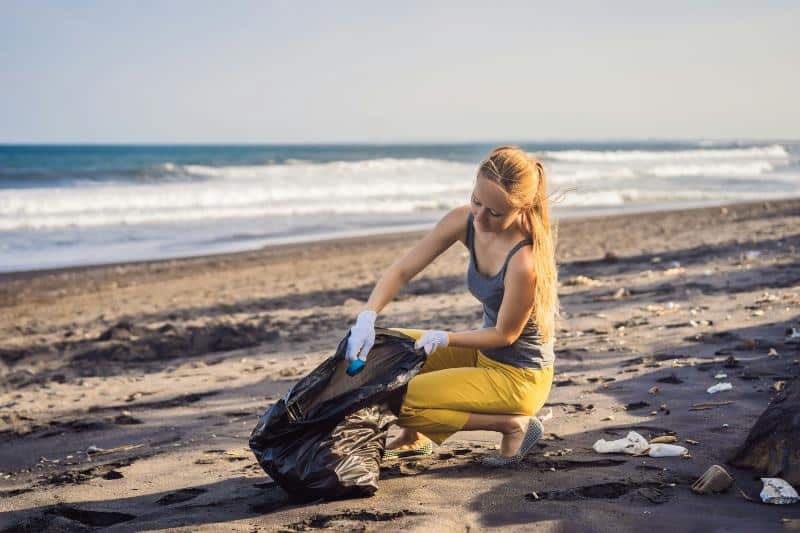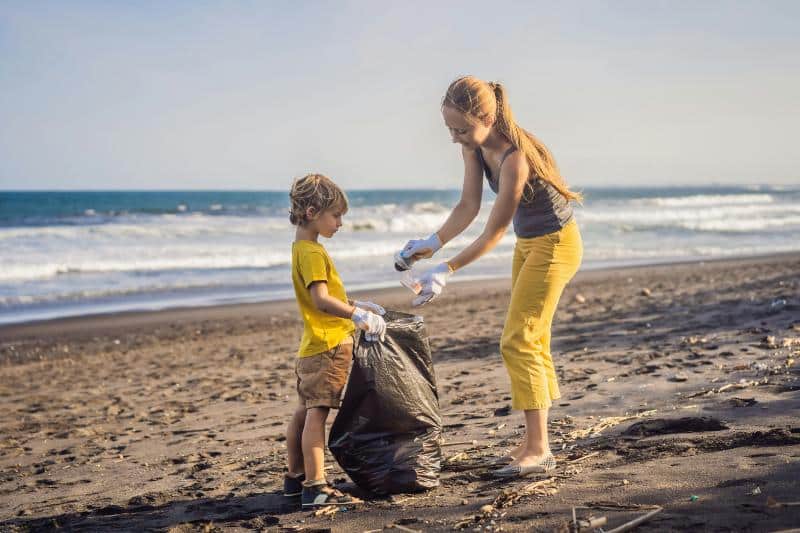The world’s oceans are teeming with life, from the tiniest plankton to the largest whales. They provide us with vital oxygen, food, and are a source of immense beauty and wonder. Yet, the oceans are under siege. Pollution, particularly plastic waste, is a global concern that’s not just harming marine life but also threatening humanity and the planet’s ecosystem as a whole. In this comprehensive guide, we’ll explore the critical issue of ocean pollution and provide actionable steps that everyone, from individuals to governments, can take to combat this environmental crisis.

Sources and Causes of Pollution
The primary sources of ocean pollution often trace back to human activities on land. Urbanization leads to increased runoff, carrying a mixture of oil, dirt, and debris from city streets directly into waterways. Irresponsible waste management compounds the issue as plastic waste from overreliance on single-use items escapes into the ocean, either directly from coastlines or indirectly through rivers. Furthermore, the excessive use of fertilizers in agriculture results in nutrient-rich runoff that creates dead zones in the water, devoid of oxygen and thus incapable of supporting marine life. Climate change accelerates the problem by causing more frequent and severe storms that wash pollutants into the ocean at a greater rate.
Community Engagement with Marine Sanctuaries
Creating a bond between people and the marine sanctuaries that protect vast areas of our oceans is fundamental to conservation efforts. Through educational programs and community-based activities about ocean pollution, individuals gain firsthand knowledge of the importance of these safe havens for marine life. Participation in beach clean-ups, reef monitoring, and citizen science projects fosters collective responsibility and empowerment.
These experiences not only help safeguard the sanctuaries but also cultivate environmental stewards who will advocate for the oceans and their inhabitants for generations to come.
Reduce Plastic Use and Promote Recycling
Reducing our reliance on plastics, especially single-use plastics like bags, bottles, and straws, is a crucial step in minimizing ocean pollution. Individuals can make a profound difference by opting for reusable alternatives and supporting businesses that prioritize sustainability. On a broader scale, advocating for policies that promote responsible plastic production and encourage recycling can lead to systemic change. Promoting a circular economy where products are designed to be reused and recycled can drastically cut the amount of waste that reaches our oceans. Educational campaigns and community initiatives play a vital role in shifting public perception and habits towards a plastic-smart lifestyle, offering hope for healthier oceans.
Support Sustainable Fishing Practices
Overfishing not only depletes fish populations but also disrupts marine ecosystems, often leading to increased ocean pollution through abandoned fishing gear and by-catch. Supporting sustainable fishing practices is essential in maintaining the delicate balance of the oceanic environment. This includes advocating for stringent regulations on fishing quotas and by-catch, promoting the use of eco-friendly fishing gear, and consuming seafood certified by reputable organizations that ensure sustainable harvesting. In doing so, we can help preserve marine biodiversity and combat the indirect consequences of overfishing that contribute to ocean pollution.
Advocate for Policy Changes and Stricter Regulations

Pressure from the public for policy changes and stricter environmental regulations plays a pivotal role in the fight against ocean pollution. Citizens need to engage with their local and national representatives to demand comprehensive legislation that addresses the root causes of marine pollution. This might include policies that limit industrial emissions, ban harmful substances, ensure proper waste management infrastructure, and enforce penalties for violators. Moreover, international cooperation is needed to tackle ocean pollution on a global scale, as marine ecosystems do not abide by man-made borders. Governments, organizations, and individuals must work collectively to enact and enforce laws that protect our oceans, ensuring they remain a vibrant and life-sustaining force for the future.
Reduce Carbon Footprint
Reducing our carbon footprint is an important strategy in mitigating ocean pollution, as carbon emissions contribute significantly to ocean acidification and climate change—factors that negatively impact marine ecosystems. By adopting more sustainable lifestyles and energy sources, such as biking, carpooling, and utilizing renewable energy, individuals can diminish their own impact on the environment. Governments and businesses also have a part to play by investing in green technology, promoting energy efficiency, and transitioning away from fossil fuels. These efforts will not only reduce the carbon emissions that are one of the root causes of ocean pollution but also foster a more sustainable and resilient global community.
Conserve Water
Water conservation is another critical aspect of protecting our oceans. By using water more efficiently and reducing pollution from runoff, we can decrease the amount of untreated water and contaminants that flow into our seas. Simple actions like fixing leaks, installing water-efficient appliances, and implementing rainwater harvesting systems can make a significant difference. On a community level, developing green infrastructure and effective wastewater treatment can drastically reduce the volume of pollutants that reach marine environments. Every drop saved contributes to the health of our oceans and the rich biodiversity they support.
Choose Eco-Friendly Products
Choosing eco-friendly products goes a long way in protecting ocean health. Products that are biodegradable or made from sustainable materials reduce the environmental burden, decreasing the likelihood of pollutants reaching the sea. Consumers have the power to drive change by supporting companies that utilize eco-friendly packaging and production methods. Additionally, using natural cleaning products and personal care items that are free from harmful chemicals prevents these toxins from infiltrating marine ecosystems via the water cycle. Embracing eco-conscious products not only helps conserve our oceans but also promotes a healthier lifestyle and a cleaner planet.
As we gaze upon the vast expanse of our oceans, the imperative to protect this critical part of our planet becomes increasingly clear. The strategies outlined herein, from reducing plastic waste and supporting sustainable fishing to advocating for powerful policy changes and embracing a low-carbon lifestyle, are not just individual acts but a collective momentum towards healthier seas. Our choices, both small and large, ripple outward, impacting the intricate web of life beneath the waves. It is through intentional, informed actions and a shared dedication to environmental stewardship that we can ensure the enduring majesty and essential balance of our oceanic ecosystems for present and future generations. Let us commit to this journey with resolve and hope, recognizing that the fate of our oceans is inextricably linked to our own.
